Free Music for Podcasts: 5 Best Royalty-Free Music Sources for Your Podcast
Music you're allowed to use in your show and best places to get royalty-free sounds for it.
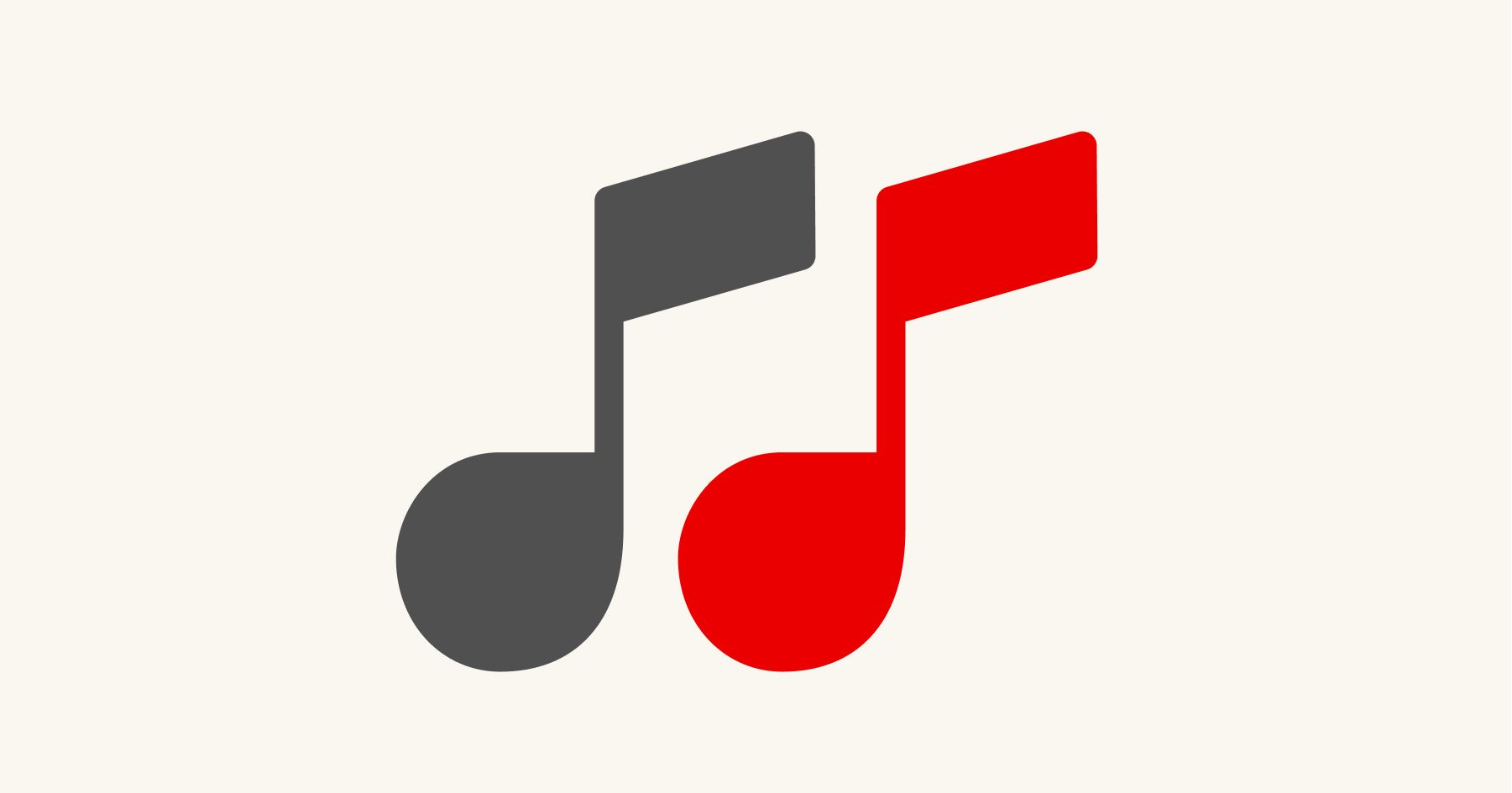
'Where words fail, music speaks,' Hans Christian Andersen once said. And though we believe your words don’t fail you, music is definitely something your podcast needs.
As a podcaster, you surely understand the importance of music that make your show memorable and recognisable. But with a labyrinth of copyright restrictions and licensing complexities, finding the right track for your podcast can often seem like searching for a needle in a haystack.
In this piece, we’ll reveal where you can find royalty-free music for your podcast, as well as explain the differences between music licences and bust common misconceptions regarding the music licensing.
Why add music to a podcast
To answer this question, let’s briefly touch on what kinds of podcast music exist. There are generally three: Podcast intro, podcast outro, and podcast segment change music that is often used as a transition from one show segment to another.
💡Tip: To learn more about typical podcast segments, check our guide on how to write a podcast script.
Podcast intro music
A podcast intro jingle can help listeners get into the right mood before they even start listening to what you have to say. Besides, intro jingles often work as your podcast brand awareness thing and become memorable, so listeners instantly recognise what they’re hearing without looking into their Spotify or Apple Podcasts apps.
Music between podcast segments
Not all shows have music that indicates a transition between the segments. However, such jingles help listeners and yourself structure your show and say that one logical part has ended and a new one is beginning. Basically, such music acts as a segue, letting you jump to the next part of your show without coming up with a smart transition phrase.
💡 To find segue templates for your show, check our post on writing a podcast script.
Podcast outro music
This jingle indicates that the episode has come to an end. It typically goes after the outro phrase when you thank your audience for listening and your guests for joining your show. If you have an intro jingle, having the same outro sound is recommended to build consistency throughout the episode and have this last finishing touch to polish the episode.
Types of music licences used in podcasts
If you want to avoid legal issues, you should know that not all music you can find can be used in podcasts without consequences. Generally speaking, there are three types of music you can legally use in your show episode:
- Creative Commons music, in most cases, lets you use a part of a track for free and without permission if you credit the creator. When you use a track under Creative Commons, read any specified terms before adding it to your show, as not every track can be used for commercial purposes.
- Public domain music means that after the original copyright holder dies, music is no longer protected by copyright and comes into the public domain. This is how most classical music and songs that were released 70+ years ago are now used freely. But note that if someone remixes this old song, the new rendition belongs to this author and does not fall into the public domain category. Thus, you’ll need permission to use this 'new-old' track.
- Royalty-free music is what you have surely heard of before but don’t get confused: you still need to buy a licence to use most of the royalty-free tracks. You can use the track during the period specified in the terms.
There are two ways to buy royalty-free licences:
- One-off purchases are mostly lifetime and mean you buy a licence to use one specific track.
- Subscriptions allow you to use a track for as long as you have an active subscription to one of the services that provide you with music catalogues, such as those below.
5 sources of royalty-free music for podcasts
Pixabay Music
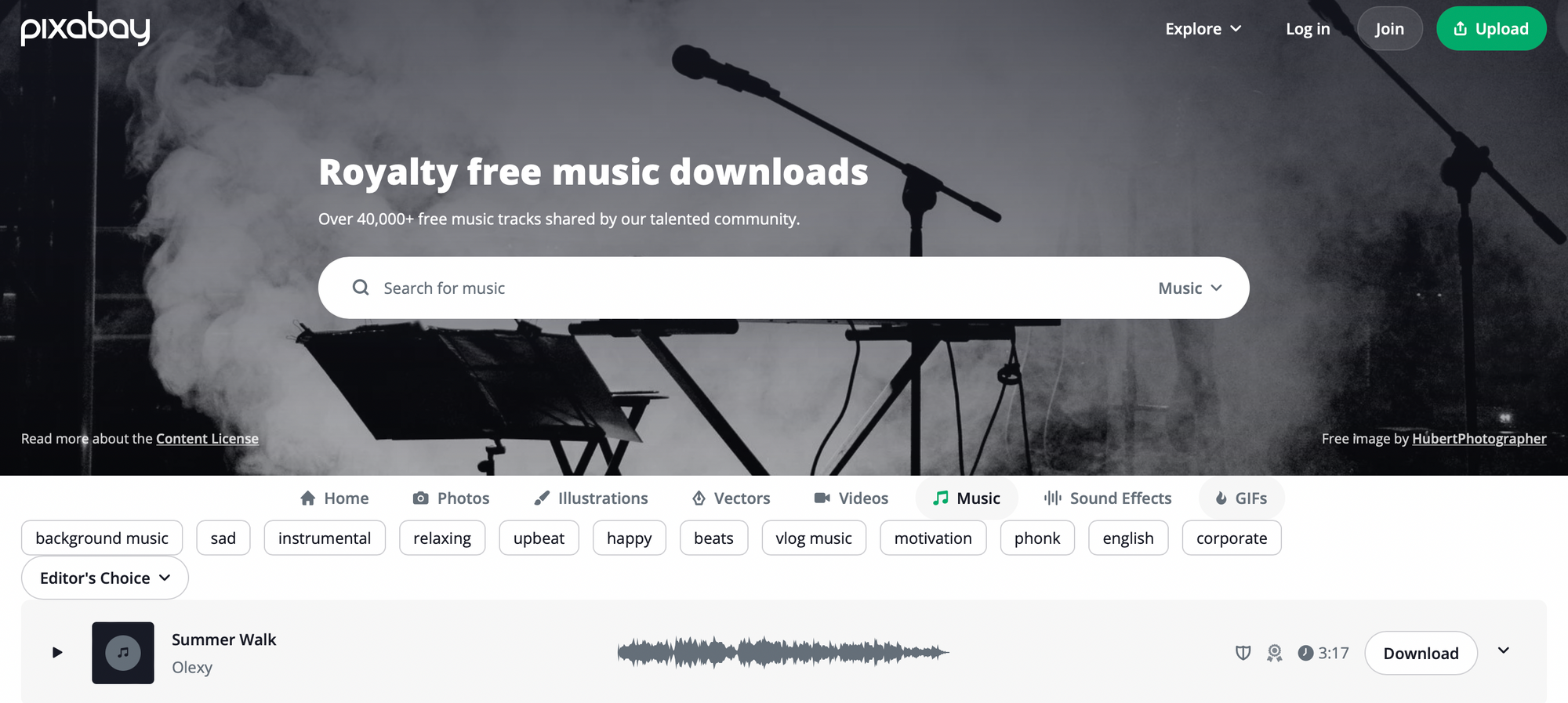
You’ve surely heard about this one or even used it when looking for copyright-free images. But in addition to photo content, Pixabay also offers a catalogue of free-to-use music. The service is easy to exploit and search for the desired tracks. No credit card required.
Free Music Archive
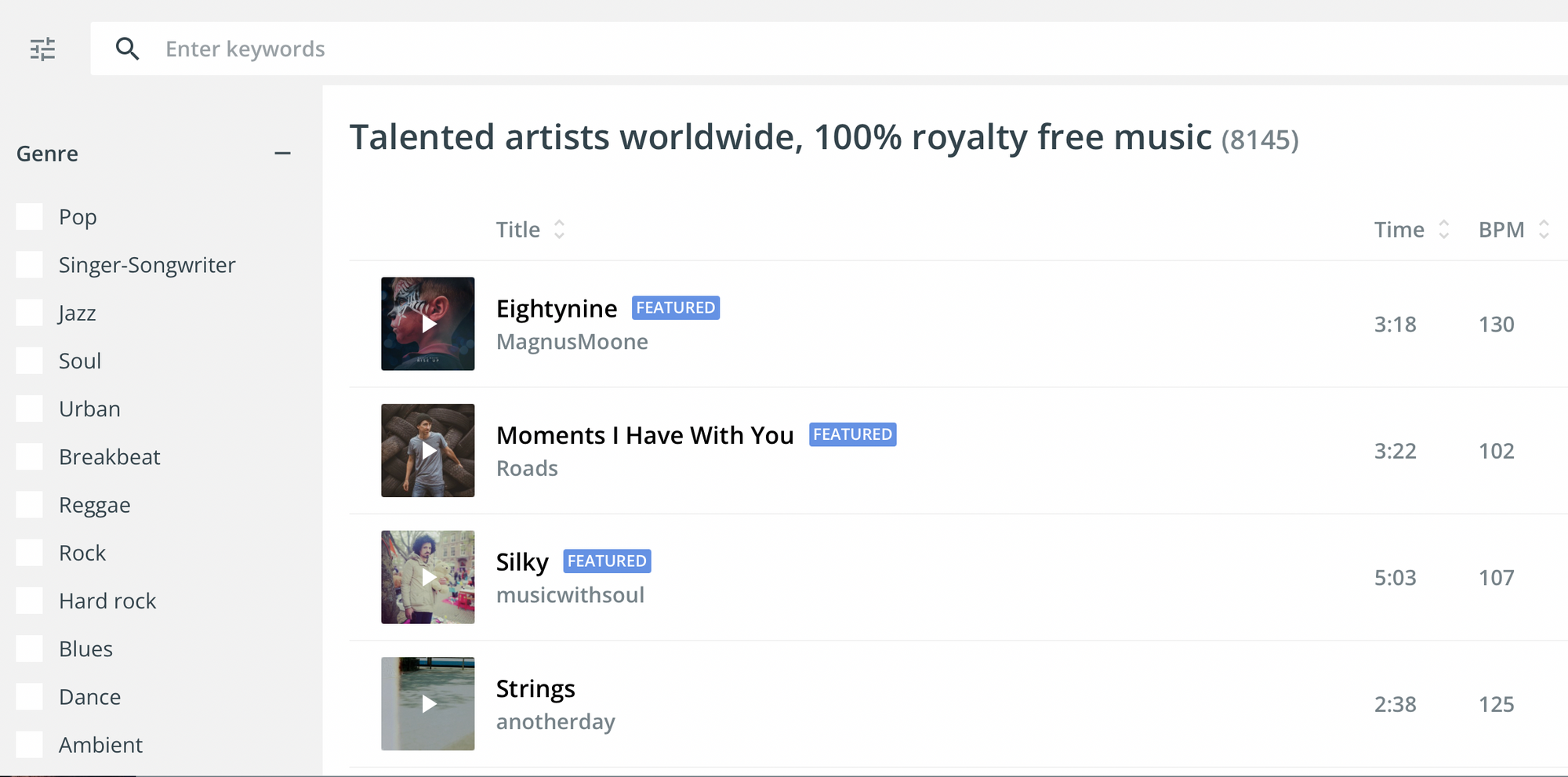
Another free music catalogue that won’t ask you to enter your billing details. Tracks are filtered by genre, feeling, duration, energy, and vocals (male, female, group, duet). For your convenience, popular tracks are placed in listings. Free Music Archive also has royalty-free Creative Commons music.
Freebeats.io
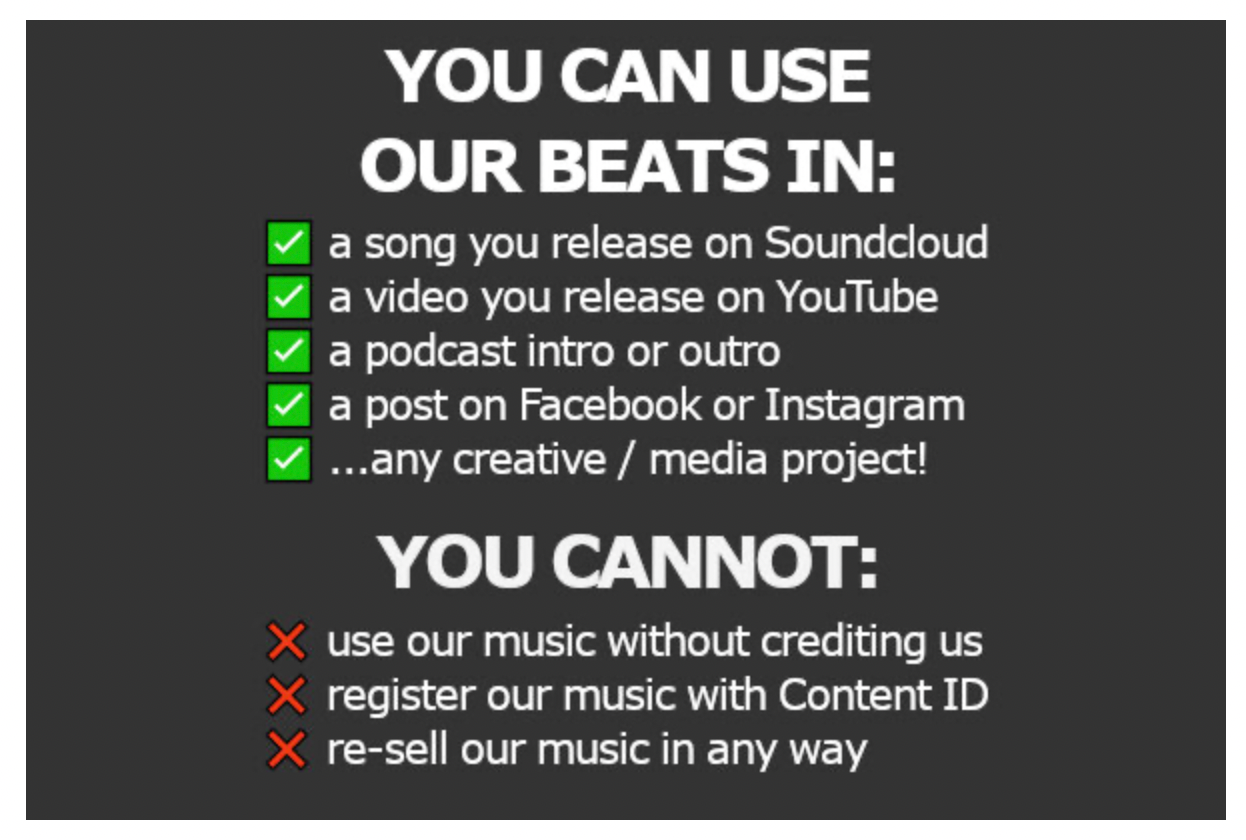
Another popular place full of royalty-free tracks is Freebeats.io. You can download all tracks from the source if you follow them on social media and give them credit.\
Incompetech
This website also offers a large library of royalty-free music, no credit card required. But you need to give this website credit when using their tracks. Otherwise, you’ll need to purchase a licence. You can also filter tracks by genre, artist, length, and feels as well as download entire collections of tracks at once.
YouTube Audio Library
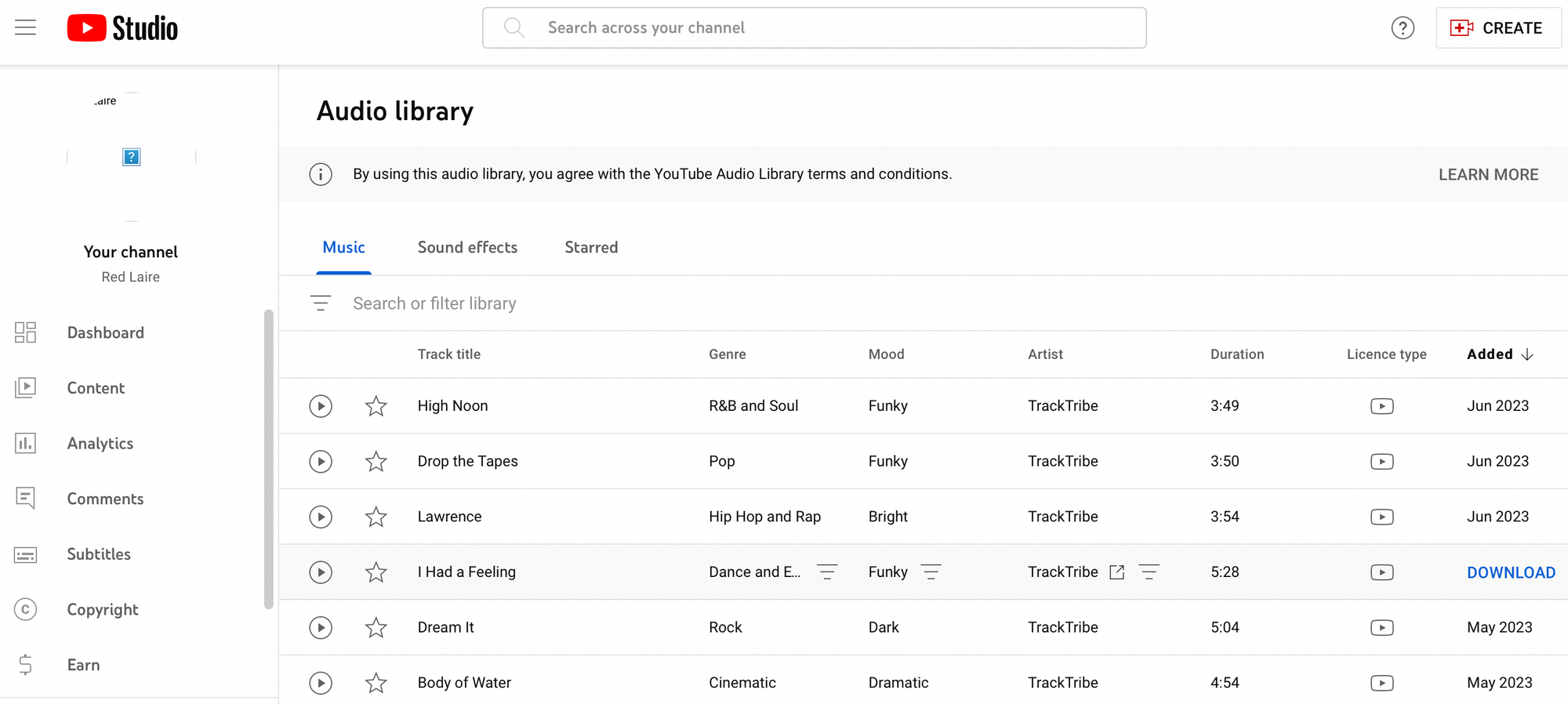
Not many podcasters know that YouTube too has a library of royalty-free tracks that you can use for free of charge. Tracks are sorted by mood, track name, artist, and genre. And if you upload your podcast to YouTube, you can overlay the track you’ve downloaded on top of your video right on the platform with no additional editing software. But for that, you need a YouTube account.
5 paid & subscription-based music for your podcast
If royalty-free libraries, for some reason, don’t comply with your expectations, consider paid and subscription-based marketplaces. Here are a few of them.
Audiojungle
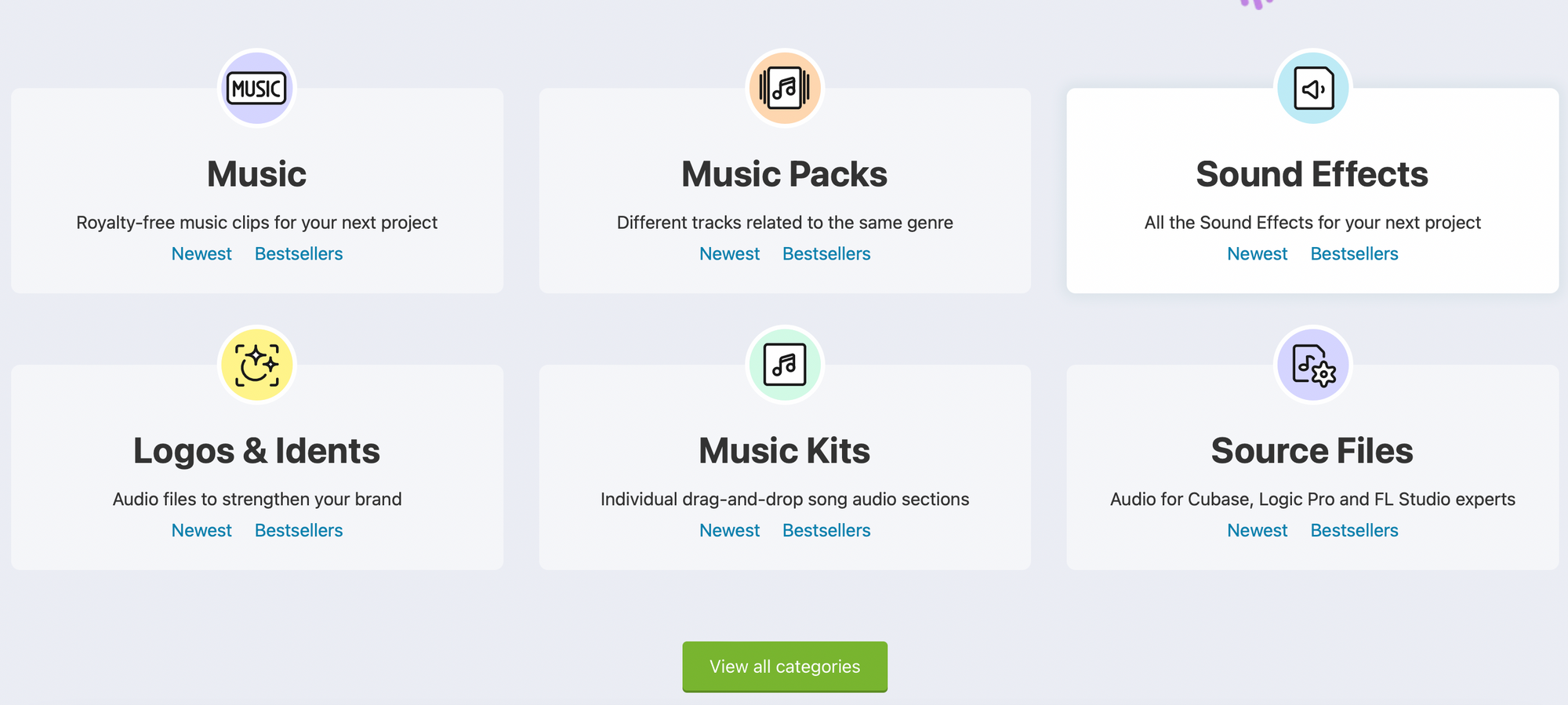
Tracks start at $1, but prices vary depending on the track. Besides, when you buy a sound, you can use it in one episode only (one end product, as the platform puts it). If you want to use the same track in every single episode, you’ll need to pay again.
Audio Blocks
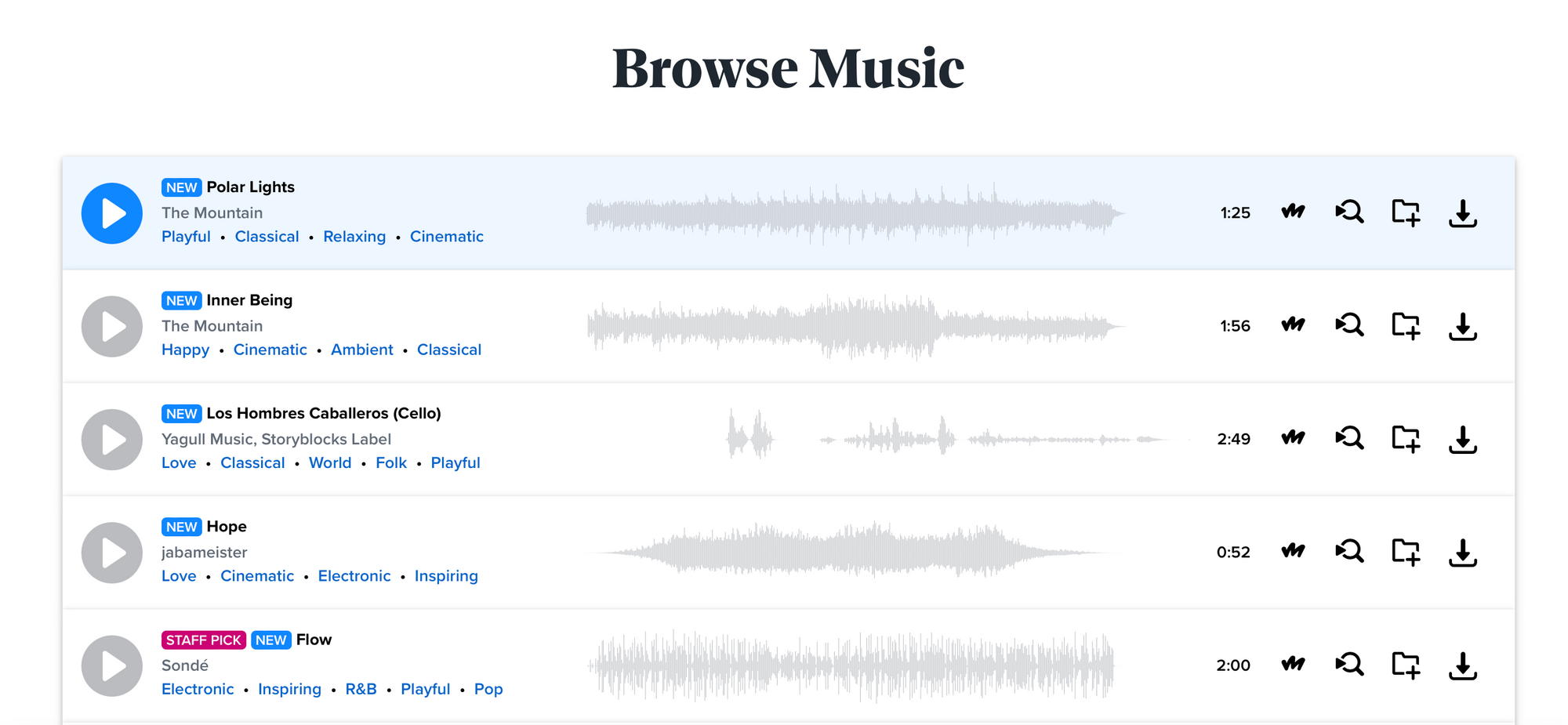
This is a subscription-based service. For $20 a month, you’ll get unlimited access and the ability to download the platform’s entire collection.
Epidemic Sound
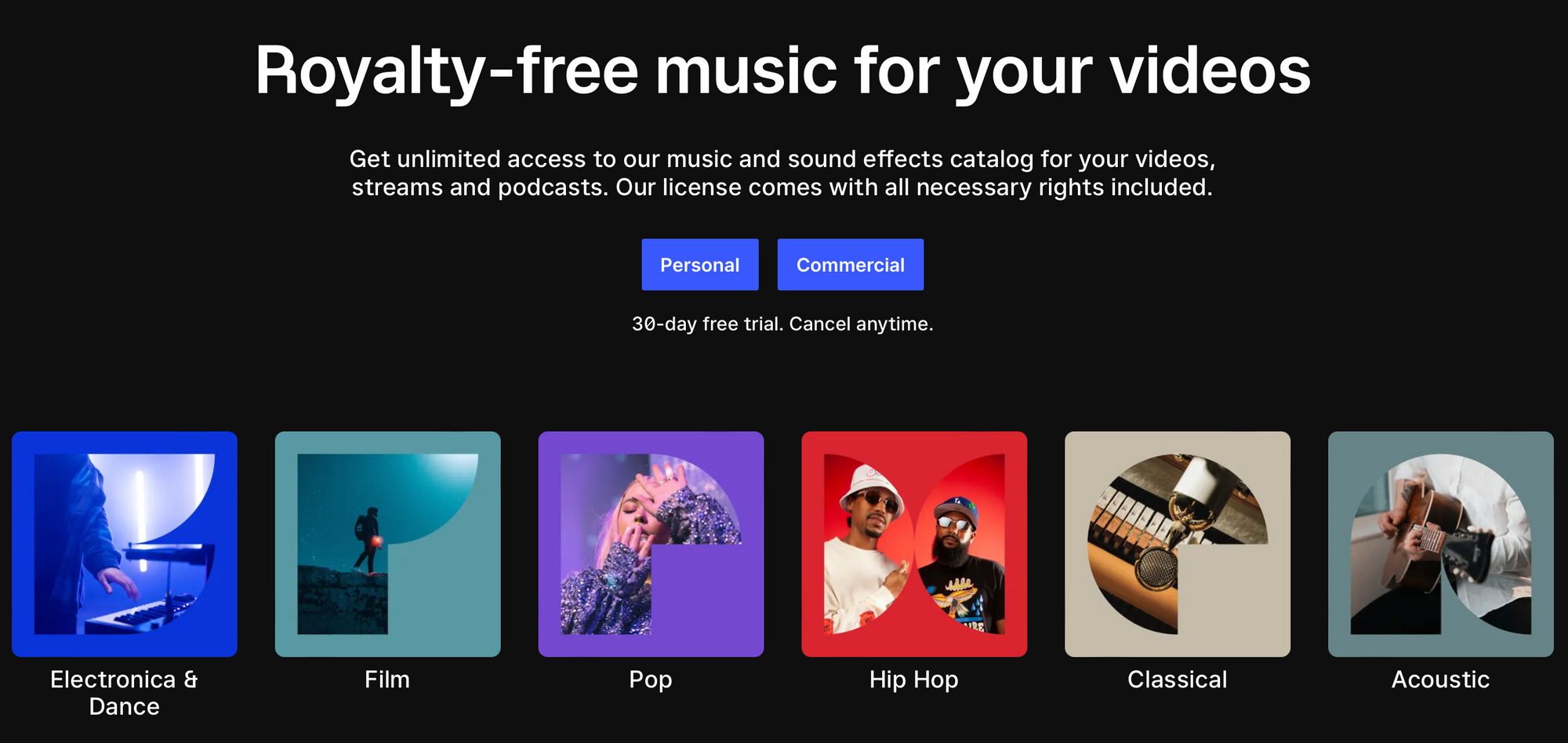
With the monthly subscription, which begins at $15 a month, you can download as many tracks and sound effects as you want with all the rights included, meaning you won’t need to have to worry about usage rights. Besides, you can save not only the entire track but also a particular stem of it, such as the guitar or piano.
🎹 Tip: You can extract instruments and vocals from any song with LALAL.AI, an AI-powered stem separation service. With LALAL.AI, you can also clean your podcast recordings of unwanted sounds.
PremiumBeat
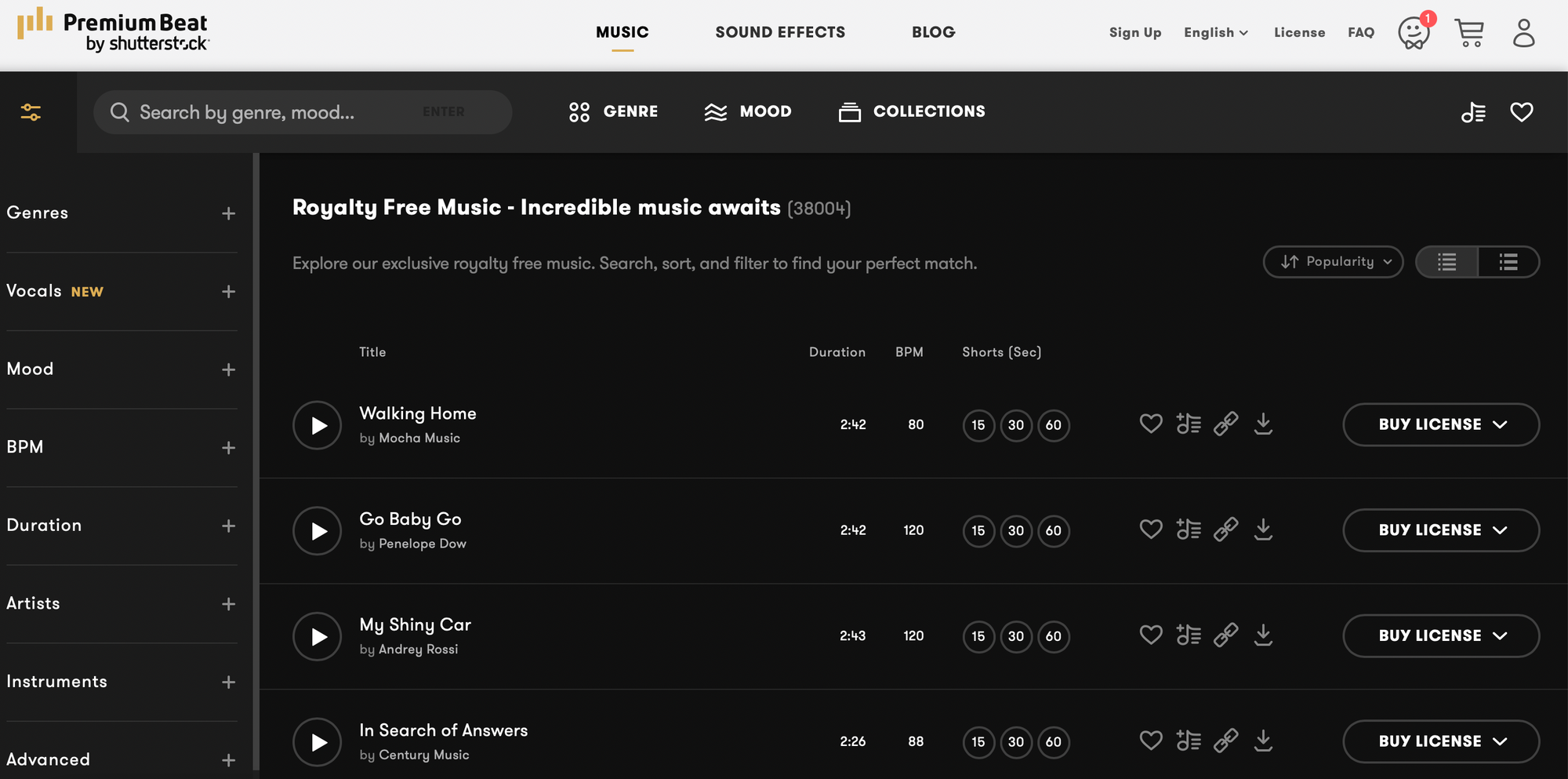
PremiumBeat offers both a one-time fee and subscription. The service provides a large collection of tracks of different genres, artists, moods, lengths, even contexts, and events to help you find just the right jingle.
Pond5

Just like the service above, Pond5 tracks can be bought through a subscription that gives access to their entire library of royalty-free music and sound effects or a one-time fee. A large library of various tracks and search by keywords are at your service.
Common myths about using copyrighted music
Law and copyright are complex subjects to grasp; this is why it’s so easy to get confused and trust some misconceptions that can often be seen on the internet. Such as these:
🔴 I can use any music if I don’t profit from it
Not true. Copyright laws apply to you regardless of your intentions — if they’re commercial or not. So even if you’re not going to make money from using a certain track, you still need to get the ‘licence’ to use it. Even if your show is not monetised yet.
Note: The length of the track doesn’t play any role, so if you intend to play a 3-second jingle in your intro, you still have to acquire the right to do so.
🔴 I can use a song if I give credit to the artist
It has no bearing at all. Unfortunately, you can't just use a Lady Gaga instrumental as a jingle and credit here in your episode 😕 It's illegal.
Don't miss our updates! Follow us on Twitter, Instagram, Facebook, and Reddit.